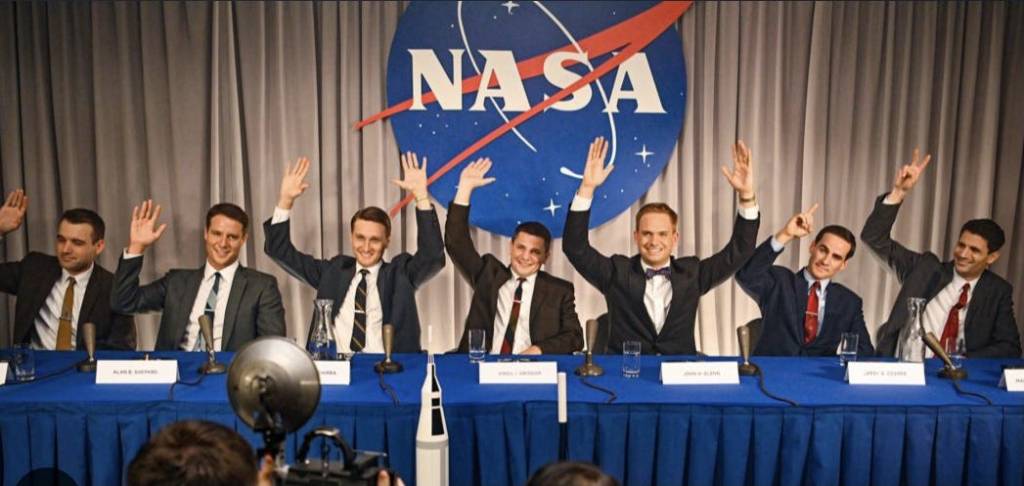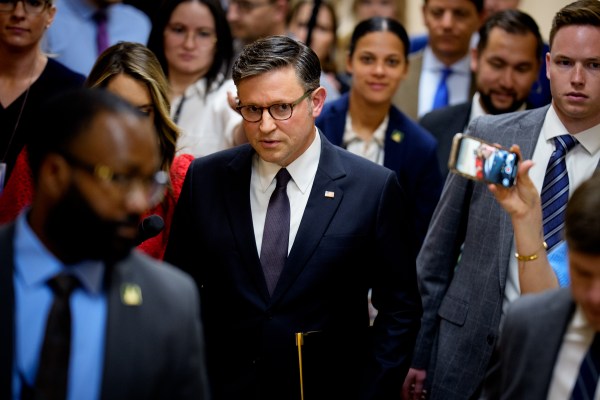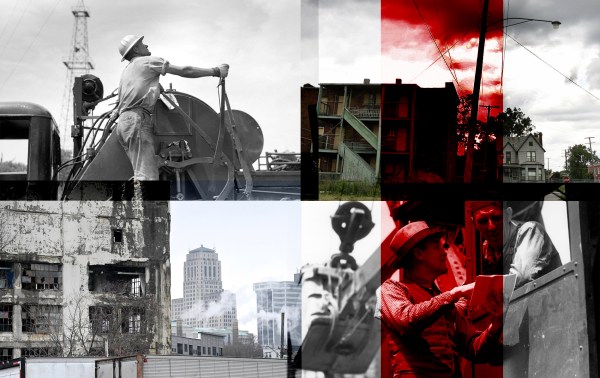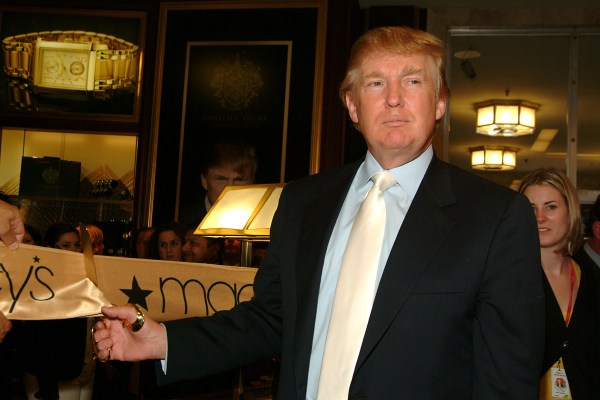I was not excited when I saw National Geographic and Disney had plans to adapt Tom Wolfe’s The Right Stuff. I am a big Tom Wolfe fan, and I feel a certain amount of fear whenever I hear one of his works is being adapted for film or television—thanks in large part to Brian De Palma and his disastrous take on The Bonfire of the Vanities. Especially since The Right Stuff had already been superbly adapted to film by director Phillip Kaufman in 1983, and the odds that lightning would strike twice seemed slim.The first two episodes dropped on Disney+ last Friday, and—while not disastrous—the show perhaps unsurprisingly fails to live up to the book or the film bearing the same name.
The Right Stuff is executive produced by Leonardo DiCaprio and brings together a cast of semi-famous TV actors and actresses, with Suits’ Patrick Adams as John Glenn leading the series. The actors turn in perfectly fine performances, but, sadly, the script didn’t give them much to work with. The writing is thin; with too many clichés and too much clunky exposition—we get to know about Alan Shepard by hearing a one-night stand literally list facts about Shepard to him as he leaves bed—but the script struggles on a much deeper level as well.
One of the central aspects of Wolfe’s writing that I love is his incredible sense of style; he wielded the English language in such a way that he could make any subject matter not just interesting, but beautiful to read about.That is not something that translates easily to film. But when you can’t have Wolfe’s verve, the second best thing one could have in retelling one of his stories is the spirit of the work. Unfortunately, it’s clear from the start of NatGeo’s The Right Stuff that it’s lacking in that spirit.
The show leaves out test pilot extraordinaire Chuck Yeager entirely, which brings us to what I believe should be a central tenet of filmmaking: If you can include Chuck Yeager in your work and you don’t, you are, to be polite, an absolute idiot. The man fell off a horse and broke his ribs the night before he was due to fly an experimental plane in an attempt to break the sound barrier. He showed up the next day and with the help of a friend jury-rigged the plane so he could shut the door since he couldn’t move his torso to do so normally, then went on to become the first person in history to break the sound barrier, an accomplishment that was immediately classified. Yeager epitomizes the right stuff, that ineffable combination of courage and skill and duty and machismo that Wolfe was so interested in exploring, and his absence in the show embodies the central problem of the show: those behind it don’t seem to understand what the right stuff is, at least not well enough to portray it on TV.
Phillip Kaufman understood it, and when he was brought on board to make the 1983 film version one of the first changes he made to the script he was presented with was restoring Yeager to the story. Yeager provides a sort of measuring stick, something for us to compare the men of the Mercury Seven to to give us a sense of what qualities unified the disparate personalities that were the first American astronauts, to give us a sense of what the titular right stuff is.
NatGeo’s The Right Stuff, however, seems more interested in what made the Mercury Seven, or at least the two-dimensional versions of them the show creates, different. We see John Glenn, the all-American, wholesome Boy Scout; Alan Shepard, the womanizer; Gordo Cooper, the workaholic, alcoholic, trying to get his life together; and…well, the other ones. We are left with caricatures rather than characters, and gain no real understanding of the men they’re supposed to be or what made those men stand out from all the rest who wanted to go to space.
In the end, The Right Stuff is a perfectly serviceable piece of television, not terrible but not great either, that suffers from the legacy of the works that preceded it. Wolfe’s book and Kaufman’s movie earned their titles by examining what special qualities the early astronauts had that enabled them to do the dangerous job that lay ahead; NatGeo’s The Right Stuff needs a different title, because that’s simply not what this show is about.







Please note that we at The Dispatch hold ourselves, our work, and our commenters to a higher standard than other places on the internet. We welcome comments that foster genuine debate or discussion—including comments critical of us or our work—but responses that include ad hominem attacks on fellow Dispatch members or are intended to stoke fear and anger may be moderated.
With your membership, you only have the ability to comment on The Morning Dispatch articles. Consider upgrading to join the conversation everywhere.